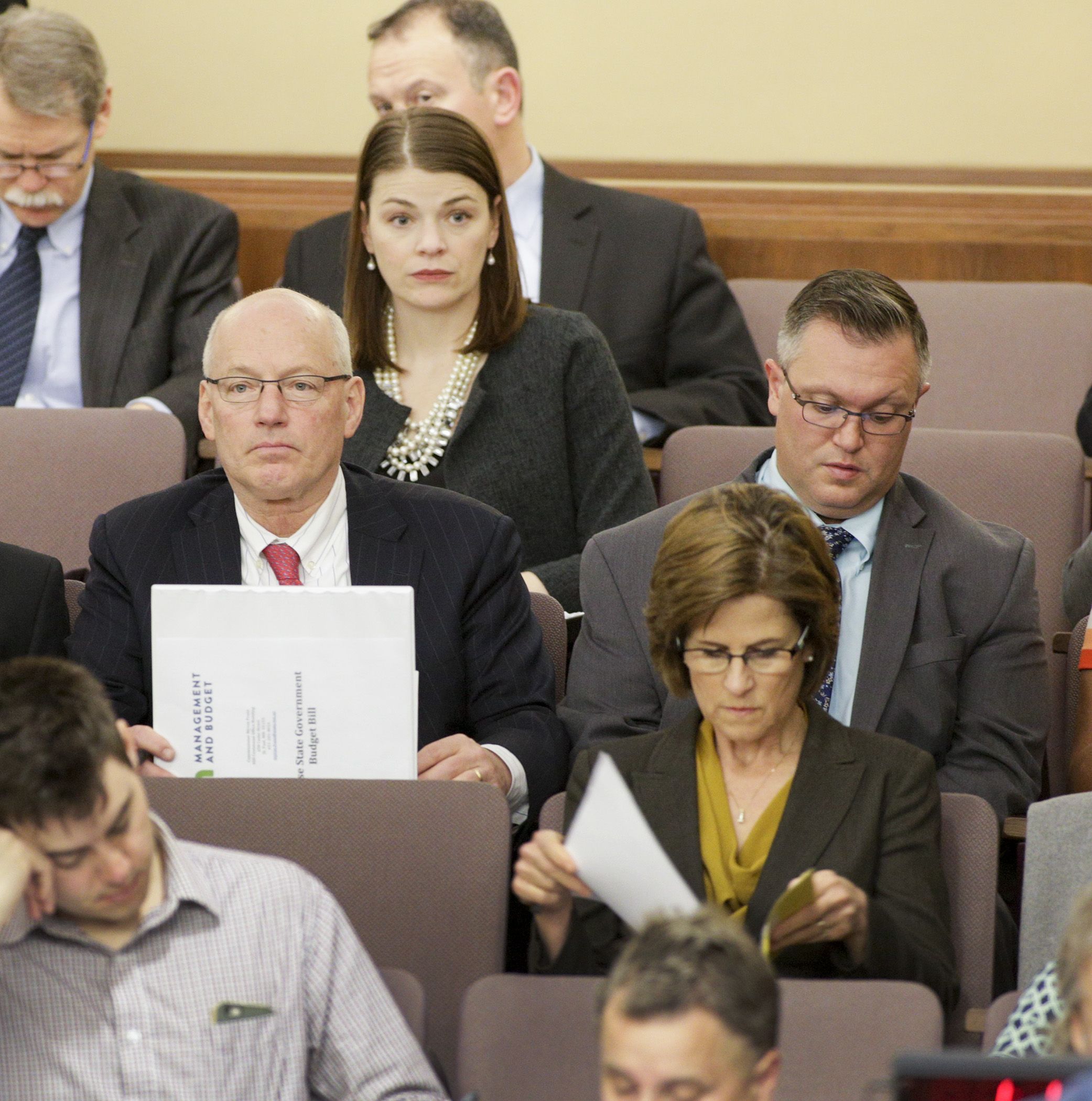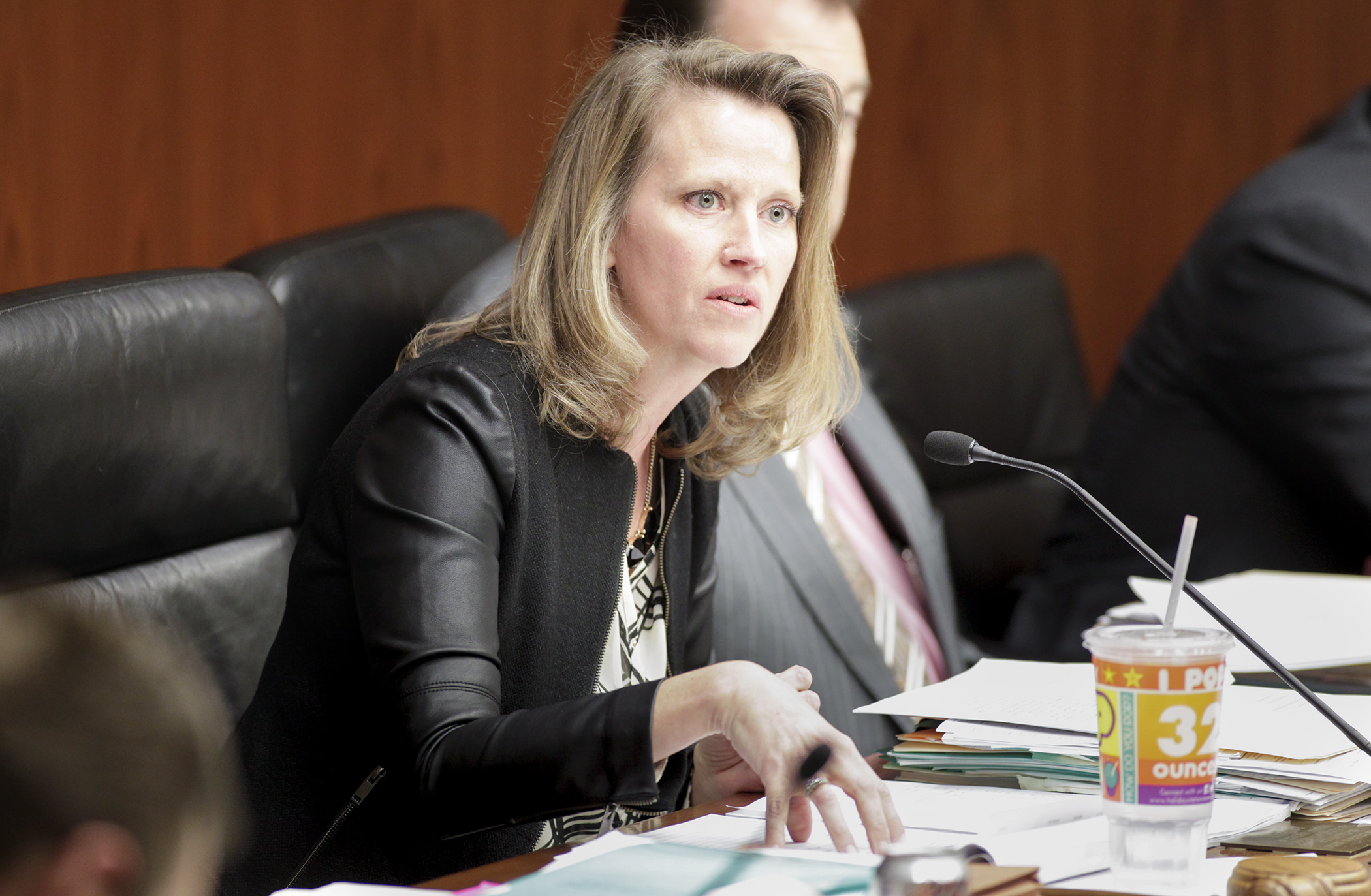Clash of political ideologies as state government omnibus bill moves on

The House State Government Finance Committee on Tuesday approved its omnibus bill that includes a $430 million reduction in executive branch spending and multiple reforms intended to streamline state government.
Passed on a 10-6 party-line, roll-call vote, HF691, as amended, heads to the House Ways and Means Committee. After more than four hours of public testimony a day earlier, the committee added changes that would benefit veterans, subject the Child Support Task Force to the state’s Open Meeting law, add more agencies to the proposed MN.IT consolidation effort and other technical amendments.
The bill would allocate $943 million in state agency spending, but the Dayton administration has raised a number of concerns about the reductions.
 Rep. Sarah Anderson, chair of the House State Government Finance Committee, makes final comments before a March 28 vote on the omnibus state government finance bill. Photo by Paul Battaglia
Rep. Sarah Anderson, chair of the House State Government Finance Committee, makes final comments before a March 28 vote on the omnibus state government finance bill. Photo by Paul BattagliaCommittee Chair Rep. Sarah Anderson (R-Plymouth) said the bill is about greater transparency in state budgeting, additional oversight and ending controversial practices like severance packages and well-paid gain-sharing programs that don’t amount to actual savings.
“Overall, we’re trying to get a handle on the growth of government,” Anderson told the committee. “I don’t think any citizen in Minnesota said to their elected official, ‘I want to grow state government by 22 percent. That’s how I want to spend the $1.6 billion in the budget surplus.’ Nobody is clamoring to have government grow by 22 percent in six years. Nobody.”
WATCH Part 1 of Tuesday's meeting of the House State Government Finance Committee
Rep. Jim Nash (R-Waconia) pointed out $6.7 million in state employee incentives as rewards for saving money. Those savings, Nash and others said, never materialized, which is why reductions in spending are necessary.
DFLers see the projected $1.65 billion surplus as reason to invest in government, specifically in recruiting more people of color and traditional minority communities, and to bolster cybersecurity technology.
“I don’t think that these are the values that we as Minnesotans stand on, and so I see this as a very troublesome time,” Rep. Liz Olson (DFL-Duluth) said. “I think there is absolute growth for the sake of growth – doesn’t need to happen. But when you sacrifice equity and effectiveness to get where you’re going, I think that’s a bad idea.”
Predicting Gov. Mark Dayton won’t sign the bill and signaling a special session, Rep. Leon Lillie (DFL-North St. Paul) equated Anderson’s proposal to “Thelma and Louise,” telling her “you’re going to just drive us off the cliff.”
The companion, SF605, sponsored by Sen. Mary Kiffmeyer (R-Big Lake), awaits action by the full Senate.
Related Articles
Search Session Daily
Advanced Search OptionsPriority Dailies
Legislative leaders set 2026 committee deadlines
By Lisa Kaczke Legislative leaders on Tuesday officially set the timeline for getting bills through the committee process during the upcoming 2026 session.
Here are the three deadlines for...
Legislative leaders on Tuesday officially set the timeline for getting bills through the committee process during the upcoming 2026 session.
Here are the three deadlines for...